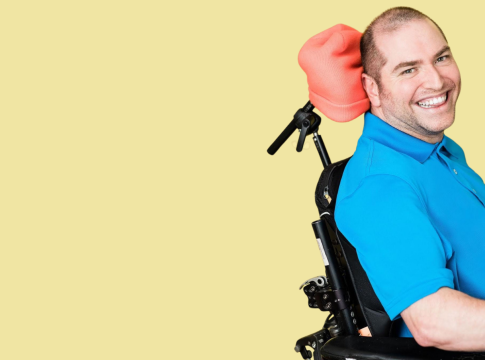Understanding Disability Grief: A Pathway to Healing
In today’s digital age, social media often showcases two predominant narratives surrounding disability: the inspirational triumphs of individuals defying adversity and the tragic tales that focus on loss and resilience. However, these portrayals can overshadow the intricate and nuanced reality of living with a disability, often failing to address an important aspect: disability grief.
What is Disability Grief?
Disability grief is the profound sense of loss that arises from living in a disabled body. It encompasses not just the physical limitations one may face but also the emotional impact of what can no longer be done. Many individuals with disabilities experience grief associated with lost potential—activities once taken for granted, like running or even simple daily tasks like showering, may no longer be accessible.
This grief can manifest in various ways:
- Longing for Abilities: A desire for activities that aren’t possible anymore.
- Loss of Independence: Transitioning from used to being capable of managing tasks independently to relying on others.
- Emotional Strain: Increased irritability, sadness, or anxiety may surface as one navigates these losses.
The Need for Recognition
Mental health professionals play a crucial role in recognizing and addressing disability grief. Kristen Williams, a psychotherapist and advocate, highlights the importance of validating these feelings. Instead of striving to “fix” individuals, therapists should create safe spaces where clients can openly discuss their experiences, including the pain and frustration that often accompany disability.
In this light, it becomes essential for mental health practitioners to confront any inherent biases that may undermine their effectiveness. Understanding how ableism—beliefs that devalue disabled individuals—can hinder therapeutic relationships is vital for fostering supportive environments.
Moving Towards Disability Joy
Transitioning from grieving what has been lost to embracing joy in one’s identity as a disabled person is a journey that many undergo. This shift often involves processing difficult emotions and allowing space for both the painful moments and the joyful ones. As Lorna Craig, a chronic illness advocate, reflects, accepting grief as a stepping stone towards joy can lead to a richer life experience.
For anyone navigating disability grief, here are some practical strategies to consider:
- Acknowledge Your Feelings: Validate your experiences without judgment. Understand that grief is a normal response to loss.
- Seek Support: Engaging with therapists who are knowledgeable about disability issues can provide essential guidance and validation.
- Connect with Others: Building connections with fellow disabled individuals can create a supportive community that recognizes shared experiences.
- Practice Self-Care: Explore activities that bring you joy, whether that’s engaging in hobbies, spending time with loved ones, or simply resting.
The Path Forward
Disability grief is a deeply personal experience that varies for each individual. By fostering understanding, compassion, and open dialogue about these challenges, we can begin to reshape the narrative surrounding disability. As we collectively shift towards a more inclusive view, let us hope for a future where discussions about disability grief flourish, leading to stronger mental health support and a richer understanding of the spectrum of experiences.
In the ever-changing landscape of social media and personal narratives, envisioning a post that reads, “I embraced my disability grief and found empowerment” is a beacon of progress we can all strive towards. Together, we can create spaces for validation, healing, and ultimately, joy.

Covers wellness, nutrition, mental health, and daily life tips.
Bio: Talia brings a background in health journalism and holistic living to help readers live better, one tip at a time.

